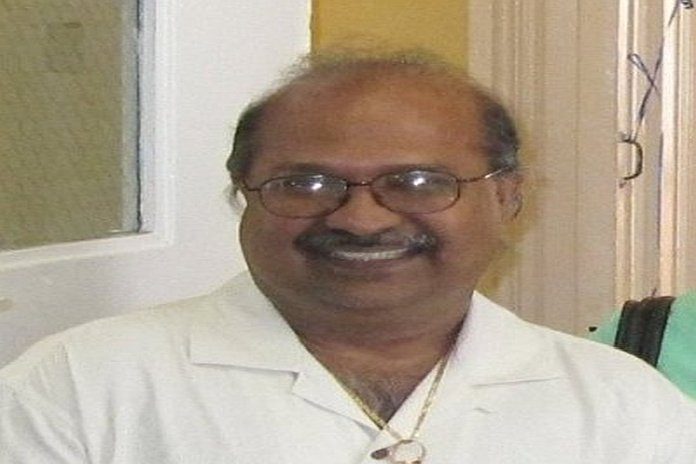By Annan Boodram – The Caribbean Voice
In the past couple of years or so the term “cancelled” has taken off on social media and has been coined as a term of power. So, what is “being cancelled”? Being cancelled is when someone or a group decides to stop supporting a person, place, or thing based on one or more negative event or action that has taken place. In effect, cancel culture is teaching everyone one thing: if something is wrong, stop supporting, affirming, following, or practising it.
However, not everyone agrees with cancelling as positive. ”‘Cancel culture’ tacitly attempts to disable the ability of a person with whom you disagree to ever again be taken seriously or in the extreme, to be hired or employed in his/her field of work,” says Letty Cottin Pogrebin, the author, activist and founding editor of Ms Magazine.
“It means different things to different people,” says Ben Wizner, director of the ACLU’s Speech, Privacy, and Technology Project.
In tweets, online letters, opinion pieces and books, conservatives, centrists, and liberals continue to denounce what they call growing intolerance for opposing viewpoints and the needless ruining of lives and careers. A Politico/Morning Consult poll shows 44 percent of Americans disapprove of it, 32 percent approve, and the remaining 24 percent had no opinion or did not know what it was.

For certain, cancel culture is not a panacea and oftentimes it zooms off into the unwanted, undesired, personalized, and negative. In this respect, some have been arguing that cancel culture is toxic to mental health, but The Caribbean Voice disagrees. In fact, ideally, we would like to permanently cancel all mental health issues but since that is not possible, here’s what should and should not be cancelled:
- For starters, the range of myths and misinformation surrounding mental health, in general, ought to be cancelled. People must ditch the idea that mentally ill people are crazy or ‘maad’. Or that if someone wants to take his/her own life, no one can do anything about it. Or that counseling is only for ‘crazy’ or ‘maad’ people. If you do not know get the facts, they are available at the click of a mouse. Always have an open mind so that long-held views can be gotten rid of once the facts are accessed. And share these facts so that you become a part of the solution rather than remain a part of the problem. Remember this is about people’s lives, and among those people could be your loved ones, so it’s ok to admit that you were wrong, especially when you now have the facts to dispel the myths and misinformation.
- Furthermore, the attitudes of either ignoring one’s mental health issues, or denying them, or both must be cancelled. After all continual striving to be the best you can be, means embracing advancement in all areas of your life. And so in the same manner that you would seek help if you have a physical health issue such as diabetes or cancer, in the same manner, you must also seek help for a mental health issue whether its autism, emotional challenges, any of the range of phobias (fear) or manias (characterized by great excitement or euphoria, delusions and overactivity) or disorder (bipolar disorder for example, or personality disorder).
- As well mental health appointments must not be cancelled unless cancellation is unavoidable. A cancellation hurts three people: you, your therapist, and another client who could have potentially utilized your time slot. Therapy sessions are scheduled in advance and are a time reserved exclusively for clients. When a session is cancelled without adequate notice, a therapist is unable to fill this time slot by offering it to another current client, a client on the waitlist, or a client with a clinical emergency. Besides, most importantly, counselling/therapy works. We know; we have used it most effectively in The Caribbean Voice.
- Another mental health cancellation is the benign acceptance of the mentally ill on the basis that there is no hope for them. The fact is that studies show that people with mental health problems get better and many recovers completely. Recovery refers to the process in which people can live, work, learn, and participate fully in their communities. There are more treatments, services, and community support systems than ever before, and they work. So not only must you be hopeful for them, but you must act based on hope and instil that hope in them as well.
- Also, we must cancel the view that people with mental health problems are violent and unpredictable. The vast majority of people with mental health problems are no more likely to be violent than anyone else. Most people with mental illness are not violent and only three-five percent of violent acts can be attributed to individuals living with a serious mental illness. In fact, people with severe mental illnesses are over ten times more likely to be victims of violent crime than the general population. You probably know someone with a mental health problem and do not even realize it, because many people with mental health problems are highly active and productive members of our communities. In effect, you must do the research, get the facts, and then do whatever is possible to enable those with mental health conditions to access active, productive lives.
- It is also very important to cancel the much-believed myth that if someone talks repeatedly about wanting to die, suicide, taking his/her own life and the like, that person should not be taken seriously. The fact is that unless action is taken, that person will one day act on his/her words. So it is so important to get that person to therapy the very first time you hear those words and, if they are repeated then you must again act, as suicidality can reoccur based on the person’s life circumstances and preponderance to issues like depression and anxiety.
- Most importantly, no allegations of abuse must be cancelled. On the contrary, every single one must be taken seriously until further investigations reveal otherwise, especially since accusations of abuse, more so sexual abuse, are often made against family members or close family friends and often are dismissed. As well if allegations are found to be true, follow up action must never be cancelled, not because of ‘family honor’, not because of ‘shame’ and certainly not because of fear, since none of these things can be more important than a person’s well-being. As well, without closure and therapy, a victim often lives with lifelong mental health consequences.
- Additionally, we much cancel the perspective that abuse, and suicide prevention are not our business. Think about this: if you are being abused or feeling suicidal would you want others to ignore your condition or would you want them to jump in and help you get help? The answer is rather obvious. So, where suicide and abuse are concerned you must do for others what you would want others to for you, your loved ones, and your friends. Make it your business to intervene and seek help for victims.
In this respect also its always better to be involved with a group than to operate on an individual basis, since the collective skills, knowledge, motivation, planning and outreach maximizes the efforts of every individual member while reducing pressure, time spent, feelings of being overwhelmed and the need to be everywhere, doing everything. For those who may be interested, The Caribbean Voice has a reputable track record in mental health advocacy and activism, with a special focus on abuse and suicide prevention.






